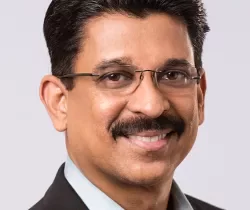Today’s marketing teams are focused on engaging with the thousands of prospects and customers in their contact databases to generate awareness. Once you have that prospect engaged, the next step for any customer in their journey is education.
Customers need to evaluate the companies they want to work with. That process includes attending trade shows, corporate events, webinars, one-to-one meetings, sales meetings, expert meetings and executive meetings. But sessions are where prospects learn more about a product and specific use-cases.
Sessions: Uses and Types
Sessions can educate customers and prospects about product launches and road maps, product training, technology updates and industry updates, and they can also be used for partner enablement. Unlike webinars (typically aimed at a broad audience), sessions are more narrowly focused. There are four broad categories: expert sessions, training sessions, executive sessions and customer/partner roundtables. Lastly, they can be both live and virtual.
Event-Focused vs. Campaign-Driven
Sessions and breakout tracks are built into the agenda of an event to complement the keynotes and exhibits. But what we’re increasingly seeing is a sessions content strategy used as part of a wider marketing campaign that’s staged across the entire year and used to target different audiences, regions or industries.
Workflow: 6 Steps for a Successful Sessions Content Strategy
Sessions are best used to move customers and prospects from awareness through to purchase. So, as we scale up from the one or two sessions at a particular event to tens or even hundreds of sessions held throughout the year, automation becomes crucial.
If you are going to offer many sessions and drive more valuable qualified leads, then you’ll need to focus on driving attendance (whether live or virtual) with these six steps.
1. Define your sessions, tracks and topics
The key determinants here are your geographical focus and marketing and sales objectives. You could define a global set of sessions and then organize your tracks by country. Or perhaps you set these up by business unit and industry focus, with sessions for the healthcare, manufacturing and industrial sectors. Next, consider the different personas you’re targeting and design optimized content for each.
2. Assign your topics, speakers and time zones
Select your subject-matter experts, assign them topics, and allocate these to your session grid. This is where an automated system becomes invaluable, since it can match up attendees with the best speaker for that time zone.
Build into your plan steps for confirming speakers, a rehearsal and tech checks — especially for a big event or a high-profile series of sessions. Consider recording sessions so you later offer them on demand.
3. Driving attendance
Your sales team should nominate their top prospects. They are well-positioned to know which customer or prospect is interested in a particular topic or a product, so make it easy for sales to register them—perhaps by automating this from within your CRM system. Next, set up a process whereby attendees can self-register and select the sessions they want to attend. Ideally, embed promotions into existing landing pages as well as your other digital marketing campaigns.
4. Automate confirmations and notifications
Once registered, attendee confirmations should be automatically generated with the proper links and calendar invites. Any alerts and notifications that you want to generate will then also go to the same person that registered. And if there's a change in time or change in location, this information can also be automated and sent as alerts or notifications to the attendee.
5. Reporting and analysis
Reporting and data sync are extremely important, especially if you're offering a large number of sessions. Your management team will want to know how these sessions are working. How many people attended? What was the impact on revenue? You’ll want to know which session on which day had the best result, which speakers got the best ratings, and which speakers need help.
6. Integration and data sync
Marketers typically have a complex technology stack, so integration and data sync with your apps is key. For virtual sessions, you’ll need to integrate with your video conferencing platform so that you can automatically send out a link to the person who registered or is nominated for a session.
Lastly, don’t forget data capture and synchronization. Sessions are a great way to capture a prospect’s particular interests and to ask about follow-up preferences. So, in addition to basic contact details, you should confirm opt-in consents and be aware of local privacy regulations so that the sales team can follow up appropriately.
While webinars are more commonplace, sessions are more effective in moving the needle on consideration. People sign up for sessions because they know they will learn something—they are more responsive to education than they are to pitching and selling. Think about how you can integrate them into your marketing mix.
Don’t miss any event-related news: Sign up for our weekly e-newsletter HERE and engage with us on Twitter, Facebook, LinkedIn and Instagram!



Add new comment